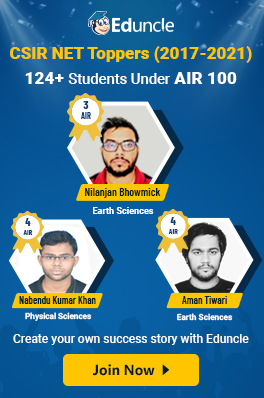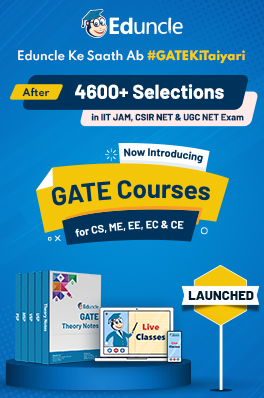
Science is an inevitable part of life. Scientists are curious persons who invent new things and observes how things work. Scientists like to resolve problems by doing experiments.
There are many scientists across the world who works and research in their respective areas like Astronomer, Botanist, Physicists, Chemist, Biologists, Geologists, etc.
India is a developing country that has a vast history of geniuses and scientists whose work in the field of science and technology has been highly appreciated across the world. Some of the Indian scientists have changed the world with their innovations and created history by setting standards for creativity.
Here we have come up with information about the Indian research organizations and top 10 Indian Scientists & their wonderful contributions.
Research Organizations & Their Exams in India to become a Scientist
In India, students who want to become a Scientist need to clear some of the exams like CSIR NET, UGC NET, DBT etc. All these exams are conducted by India’s top Scientific Research Organizations to select deserving candidates for research work.
Some of the top Research organizations in India are –
DRDO (Defence Research and Development Organisation)
ISRO (Indian Space Research Organisation)
CSIR (Council of Scientific & Industrial Research)
BARC (Bhabha Atomic Research Centre)
Top 10 Indian Scientists of India - Get Details!
Below you can get the details about the Top 10 great Indian Scientists who made history with their outstanding inventions.
Chandrasekhara Venkata Raman (CV Raman)
Chandrasekhara Venkata Raman, a great scientist who was born in Tiruchirapalli on November 7, 1888.
Invention - Scattering of light in 1930.
He discovered that -
“When light traverses a transparent material, some of the deflected light changes in wavelength. This phenomenon is now called the Raman scattering and is the result of the Raman effect.”
Awards & Honors –
Fellow of the Royal Society In 1924
Nobel Prize in Physics in 1930
Franklin Medal in 1941
Bharat Ratna in 1954, the highest civilian award in India.
Lenin Peace Prize in 1957
CV Raman's discovery recognized as an International Historic Chemical Landmark in 1988 by the American Chemical Society and the Indian Association for the Cultivation of Science
“National Science Day” is celebrated on 28 February every year in India to commemorate the discovery of the Raman Effect in 1928 in his honor.
Dr. C.V. Raman, the great legend of India died of natural causes on 21 November 1970.
Jagadish Chandra Bose
Jagadish Chandra Bose was born on November 30, 1858, in Mymensingh, now in Bangladesh. He first wanted to go to Civil Services in England but later changed his mind and got engaged in natural science at Cambridge.
He had become a polymath, physicist, biologist, archaeologist, and early writer of science fiction.
Invention – “Crescograph”, in this research he stated that the plants are living entities by detecting very small motions within their tissues.
Awards & Honors –
Companion of the Order of the Indian Empire in 1903.
Companion of the Order of the Star of India in 1912.
Knight Bachelor (1917).
Fellow of the Royal Society in 1920.
J.C. Bose University of Science and Technology, YMCA, named in his honor.
Member of the Vienna Academy of Sciences, 1928.
President of the 14th session of the Indian Science Congress in 1927.
The Indian Botanic Garden was renamed in his honor as the Acharya Jagadish Chandra Bose Indian Botanic Garden on 25 June 2009.
Acharya J.C. Bose was a man of many talents who died on 23rd November 1937 in Giridih, now in Jharkhand.
Homi Jehangir Bhabha
Homi J. Bhabha was born on 30th October 1909 in Bombay. He had become the first chairperson of the atomic energy commission of India in 1948. He played an important role to convince the Nehru Govt. to start India’s Nuclear Programme. That’s why he is known as the Father of the Indian Nuclear Program.
Invention – He is known for the Indian nuclear programme, Cascade process of Cosmic radiations point particles, Bhabha Scattering Theoretical prediction of Muon.
Awards & Honors –
Fellow of the Royal Society in 1941.
Adams Prize in 1942.
Padma Bhushan in 1954.
Reader in the Physics Department of the Indian Institute of Science.
He died on 24th January 1966 in an airplane crash near Mont Blanc.
Shrinivasa Ramanujan
Shrinivasa Ramanujan, one of the greatest mathematical geniuses of India was born on 22nd December 1887 in Tamil Nadu. Every year in India, this day is celebrated as National Mathematics Day.
Inventions
With his startling knowledge in Mathematics, he had contributed to many mathematical fields such as number theory, infinite series, complex analysis, and continued fractions.
He developed an extremely efficient method of measuring pi in the early 20th century which was later implemented into computer algorithms.
Awards and Honors
Fellow of the Royal Society in 1918
Fellow of Trinity College in 1918
The mathematical genius Shrinivasa Ramanujan died on 26th April 1920.
Mokshagundam Visvesvaraya
M Visvesvaraya was born on 15 September 1861 in Muddenahalli near Chikkaballapur. His birth anniversary is celebrated as Engineer’s Day every year.
Inventions
He is the inventor of the Block System - automated doors that were used in the conditions of overflow.
He is known for his contribution to harnessing water resources and for building and consolidating dams across the country.
Awards and Honors
Companion of the Order of the Indian Empire (CIE) in 1911.
Diwan of Mysore, in 1915
Knight Commander of the Order of the Indian Empire (KCIE)
Bharat Ratna in 1955
M Visvesvaraya, a well-known contributor to society died on 14th April 1962.
Get Free CSIR NET Sample Study Material designed by Experts
Dr. Avul Pakir Jainulabdeen Abdul Kalam
APJ Abdul Kalam was born on 15th October 1931 in Rameswaram, India. He served as the President of India from 2007-2011, an Aerospace engineer with Defence Research and Development Organization (DRDO) and Indian Space Research Organization (ISRO).
The world knows him as a poet, teacher, leader, motivator, missile man, and many more names.
Inventions
He developed ballistic missile and launch vehicle technology, by this he also earned the title of 'Missile Man of India'.
APJ Abdul Kalam was also responsible for the development and operationalization of “AGNI” and “PRITHVI” missiles.
He also collaborated with cardiologist B. Soma Raju in designing a coronary stent which is known as ‘Kalam-Raju-Stent’ that made healthcare accessible for all.
Awards and Honors
Padma Bhushan in 1981
Padma Vibhushan in 1990
Bharat Ratna in 1997
Indira Gandhi Award for National Integration in 1997
Veer Savarkar Award in 1998
SASTRA Ramanujan Prize in 2000
Von Braun Award in 2013
Distinguished Fellow – Institute of Directors, India in 1994
Honorary Fellow – National Academy of Medical Sciences in 1995
Honorary Doctorate of Science – University of Wolverhampton, UK in 2007
King Charles II Medal – UK in 2007
Honorary Doctor of Engineering – Nanyang Technological University, Singapore in 2008
International von Kármán Wings Award – California Institute of Technology, USA in 2009
Hoover Medal – American Society of Mechanical Engineers, USA in 2009
Doctor of Engineering – University of Waterloo, Canada in 2010
IEEE Honorary Membership – Institute of Electrical and Electronics Engineers, USA in 2011
Honorary Doctor of Laws – Simon Fraser University, Canada in 2012
Honorary Doctor of Science – University of Edinburgh, Scotland in 2014
The very rare and respected scientist, Dr. APJ Abdul Kalam died on 27th July 2015 in Shillong, Meghalaya, India.
Vikram Sarabhai
Vikram Sarabhai, an Indian physicist, and industrialist was born on 12th August 1919 in Ahmedabad, Gujarat.
Invention
He played a major role in the launch of India’s first satellite ‘Aryabhatta’.
He stated that cosmic rays are a flow of energy particles with their source in outer space.
He was a physicist and astronomer who initiated space research and helped in the development of nuclear power in India.
He is the father of the Indian Space Research Organization (ISRO).
Awards and Honors
Padma Bhushan in 1966
Padma Vibhushan (posthumously) in 1972
Vikram Sarabhai died on 30th December 1971 in Trivandrum, Kerala, India.
Prafulla Chandra Ray
Prafulla Chandra Ray, the father of Indian Chemistry was born on 2nd August 1861. He was an eminent Bengali chemist, educationist, historian, industrialist, and philanthropist.
Inventions
He provided a thesis on ‘Conjugated Sulfate of Copper Magnesium Group: A Study of Isomorphs Mixtures and Molecular Combinations’.
He discovered “Mercurous Nitrite”.
He established the Bengal Chemicals & Pharmaceuticals company.
Awards and Honors
Companion of the Order of the Indian Empire (CIE) in 1912
Knight Bachelor in 1919
Fellow of the Chemical Society (FCS) in 1902
Foundation Fellow of the National Institute of Sciences of India (FNI) in 1935
Fellow of the Indian Association for the Cultivation of Science (FIAS) in 1943
One of the greatest Chemists of India, Prafulla Chandra Ray died on 16th June 1944 in Kolkata.
Satyendra Nath Bose
Satyendra Nath Bose, an Indian mathematician, and physicist was born on 1st January 1894 in Kolkata. In the early 1920s, he was well known for his work on quantum mechanics.
Invention
Bose-Einstein condensate
Bose-Einstein statistics
Bose-Einstein distribution
Bose-Einstein correlations
Bose gas
Boson
Ideal Bose Equation of State
Photon gas
Awards and Honors
Padma Vibhushan in 1954
Fellow of the Royal Society
Appointed as the National Professor, the highest honor in the country for a scholar.
He died on 4th February 1974 in Calcutta, India.
Subrahmanyan Chandrashekhar
Subrahmanyan Chandrashekhar, an Indian-American astrophysicist was born on 19th October 1910 in Lahore, Punjab.
He worked in the field of Astrophysics, General Relativity, Fluid dynamics and Radiation.
Inventions – He is known for his following works -
Chandrasekhar limit
Chandrasekhar number
Chandrasekhar friction
Chandrasekhar–Kendall function
Chandrasekhar's H-function
Emden–Chandrasekhar equation
Chandrasekhar–Page equations
Chandrasekhar tensor
Chandrasekhar virial equations
Batchelor–Chandrasekhar equation
Schönberg–Chandrasekhar limit
Chandrasekhar's white dwarf equation
Chandrasekhar polarization
Chandrasekhar's X- and Y-function
Discrete Ordinates Method
Awards and Honors
FRS in 1944
Adams Prize in 1948
Nobel Prize in Physics in 1983
Copley Medal in 1984
National Medal of Science in 1966
Royal Medal in 1962
Padma Vibhushan in 1968
Heineman Prize in 1974
S. Chandrashekhar died on 21st August 1995 in Chicago, Illinois, U.S.
Apart from these extraordinary names, we cannot neglect the achievements of other eminent Indian scientists such as - Meoseghnad Saha, Janaki Ammal, Har Govind Khurana, Salim Lal and others who given their contribution to making society well.
Hope this article provided you enough information about our nation’s Top 10 Scientists. If you still have any queries, you can ask us by dropping a comment in the below section.
Thank You!





















